County Armagh's changing accents studied in 1960s school tapes
- Published
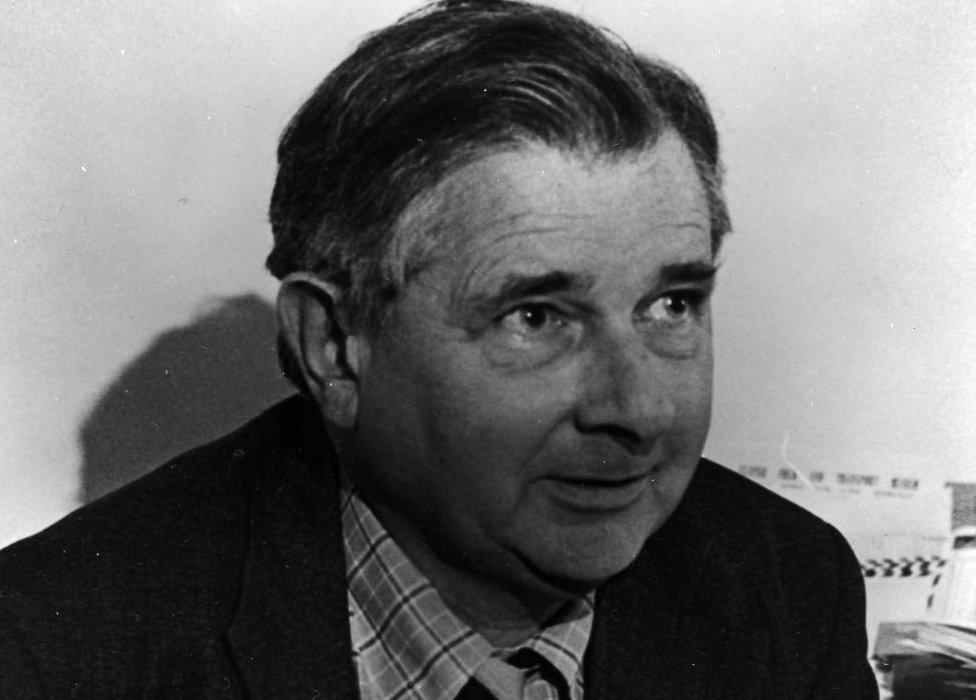
Languages curator Brendan Adams made the original recordings more than 50 years ago
In June 1968, Brendan Adams, the curator of languages at the Ulster Folk Museum, travelled to the southern shores of Lough Neagh.
While he was there, he visited two schools - Ardmore and Derrytrasna.
In the schools he recorded interviews with the primary school children about the summer, folklore, popular songs and they also read a list of words.
In doing so he was capturing the time, the place and the accent of the County Armagh section of the lough shore.
More than half a century later, the museum has been undertaking a three-year programme called "unlocking our sound heritage" in which more than 5,000 recordings from redundant formats have been digitised.
Adults in County Armagh hear recordings of themselves from 1968
Among them are the Ardmore and Derrytrasna tapes.
Donal McAnallen is the project manager of the initiative.
"The reasons why they were recorded at those two schools was because Brendan Adams had a particular interest in 'the Montiaghs' - the north Armagh dialects of speaking English," he said.
"The childhood innocence of the recordings is extraordinary. One of the phrases used is the 'hayweather', which is used to describe the summer.
"The children talk about going swimming in Lough Neagh on a daily basis - which probably wouldn't be allowed today.
"Some things haven't changed, like midges being ever-present at this time of year."
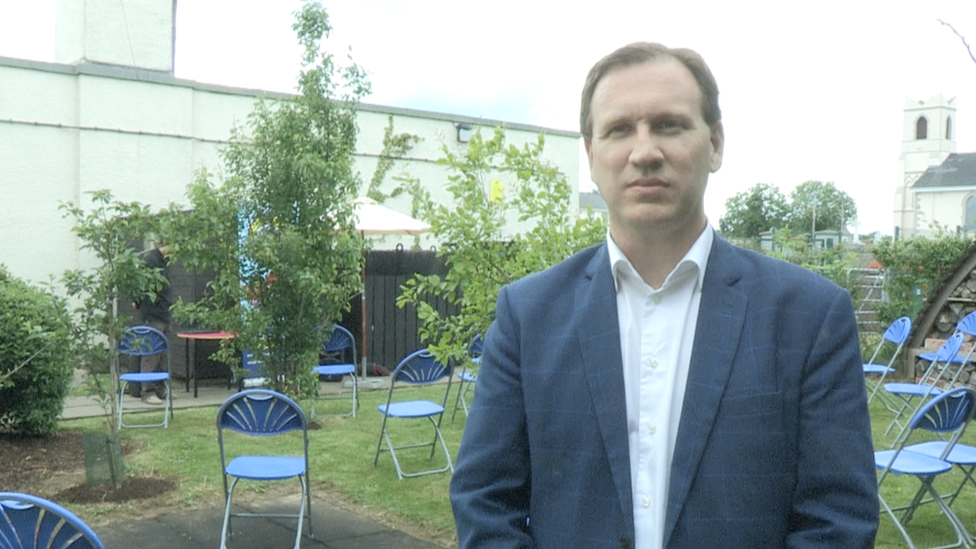
Donal McAnallen tracked down some of the children who took part in the original recordings
Having digitised the recordings, Mr McAnallen and his team set about finding some of those children, now a little older, with a view to playing them the tapes.
Recently an event took place in the garden at St Mary's Primary School in Derrytrasna, which brought together some of those boys and girls who are now men and women.
But none of them could remember the recordings being taken, including Margaret Kingham who was taped in 1968 recounting a mythical tale about Lough Neagh was formed.
The young Margaret claimed Fionn Mac Cumhaill - the legendary Irish giant Finn McCool - lifted a sod of earth and threw it towards England, inadvertently creating the Isle of Man.
Listening back to the tape 53 years later, Ms Kingham said: "I was really happy to hear myself because living around here we had such a happy childhood."
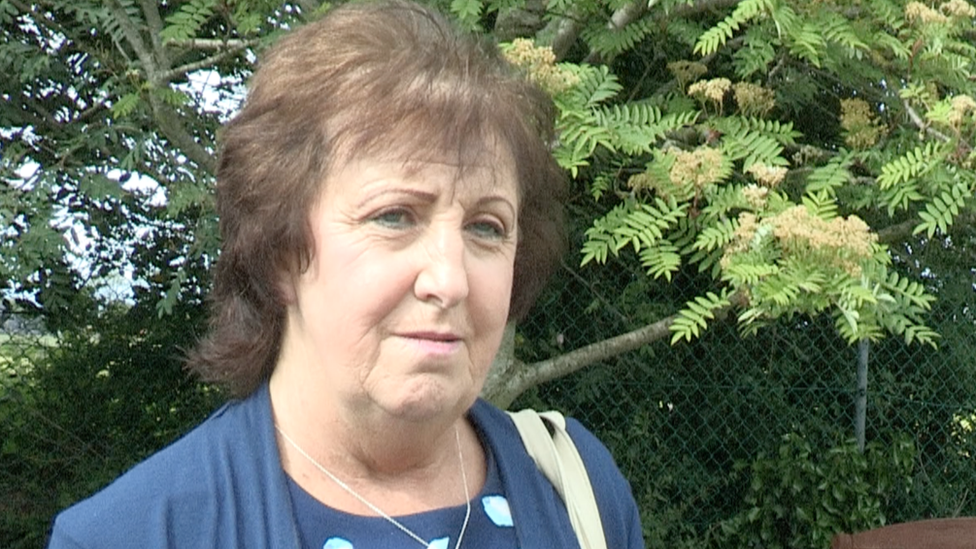
Lela Gorman was recorded telling tall tales about an Irish giant
For others, the tapes brought back poignant memories.
Lela Gorman said she listened to her younger self "mentioning my mother, my brother, my sister who are all passed on".
"All gone - just mentioning their names was very emotional," she added.
The school reunion event served the double purpose of interviewing the current generation of pupils in the Derrytrasna school, many of whom were surprised by the degree to which local accents had changed.
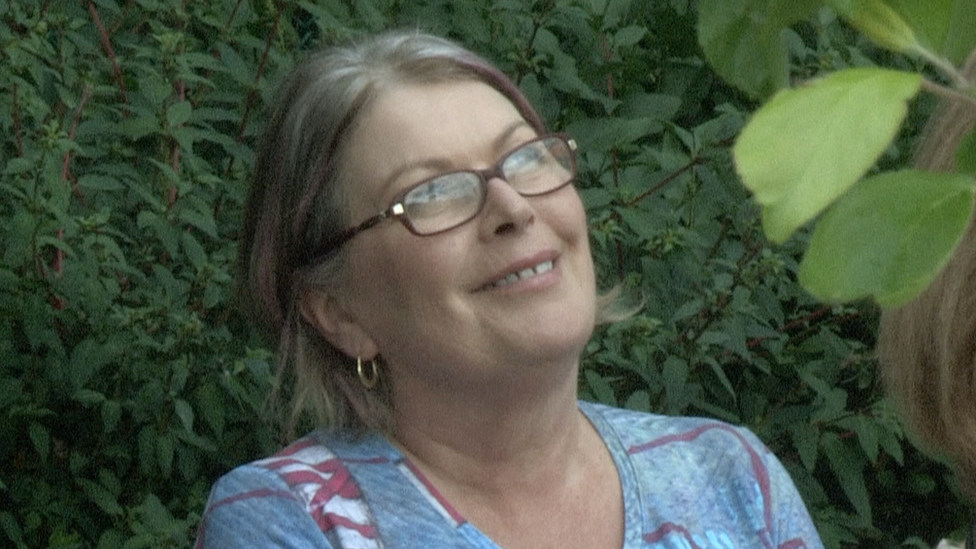
Listening back to the archive was a bittersweet experience for Margaret Kingham
"Their accents were a little bit different, a little bit more country," said primary seven student Ryan.
For nine-year-old Fiadh, the event was quite poignant as her grandfather appeared on the tapes.
"I couldn't really make him out because he was quite broad," she said.
The recordings also gave an opportunity to compare then and now.
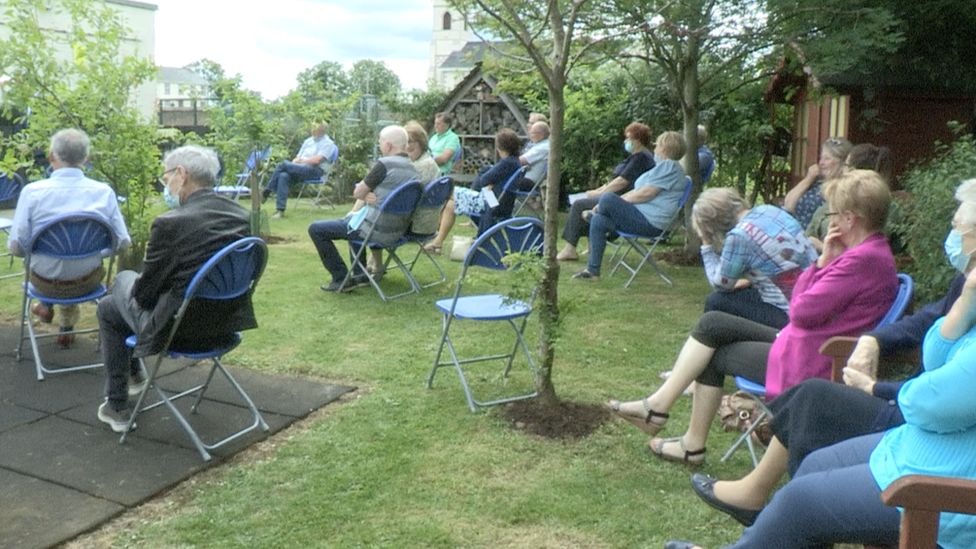
The class of 1968 met again to hear the old tapes
"They were talking about skipping and wildlife and Lough Neagh," said pupil Sienna.
"Not much was different but there were some things we don't do that they do."
With one eye on the past and one on the future, pupil Enda believes things will continue to change.
"I think the voice might change, maybe not as much as it has," he said.
"I think it'll be more digital stuff that they do, rather than going outside and playing."
Related topics
- Published11 November 2020

- Published12 September 2016
